
Arbaminch: The Gem of Southern Ethiopia
Nestled in the heart of southern Ethiopia, Arbaminch is a captivating destination known for its stunning landscapes and vibrant culture. The name Arbaminch translates to 'forty springs', derived from the numerous natural springs found in the area. These springs contribute to the lush greenery and fertile land that make Arbaminch a picturesque getaway. The town is uniquely positioned between two of Ethiopia's largest lakes, Lake Abaya and Lake Chamo. These lakes are part of the Nechisar National Park, a haven for wildlife enthusiasts. Visitors can take boat trips to see the famous 'crocodile market' where large Nile crocodiles bask in the sun. Bird watchers will also be delighted by the variety of bird species that call this park home. Arbaminch is also home to the Dorze people, known for their traditional weaving and unique bamboo houses. A visit to a Dorze village offers a glimpse into their rich cultural heritage and craftsmanship. The local markets are vibrant with fresh produce, crafts, and textiles, providing a sensory feast for tourists. Whether you're exploring the natural springs, enjoying a boat ride on the lakes, or immersing yourself in the local culture, Arbaminch offers a refreshing and unforgettable experience for every traveler.
Local tips in Arbaminch
- Visit the 'crocodile market' in Nechisar National Park for a unique wildlife experience.
- Explore the local markets for fresh produce and handmade crafts.
- Take a guided tour to a Dorze village to learn about their traditional weaving and unique bamboo houses.
- Pack light and breathable clothing, as the climate can be warm and humid.
- Consider hiring a local guide to enhance your experience and gain deeper insights into the area.
Arbaminch: The Gem of Southern Ethiopia
Nestled in the heart of southern Ethiopia, Arbaminch is a captivating destination known for its stunning landscapes and vibrant culture. The name Arbaminch translates to 'forty springs', derived from the numerous natural springs found in the area. These springs contribute to the lush greenery and fertile land that make Arbaminch a picturesque getaway. The town is uniquely positioned between two of Ethiopia's largest lakes, Lake Abaya and Lake Chamo. These lakes are part of the Nechisar National Park, a haven for wildlife enthusiasts. Visitors can take boat trips to see the famous 'crocodile market' where large Nile crocodiles bask in the sun. Bird watchers will also be delighted by the variety of bird species that call this park home. Arbaminch is also home to the Dorze people, known for their traditional weaving and unique bamboo houses. A visit to a Dorze village offers a glimpse into their rich cultural heritage and craftsmanship. The local markets are vibrant with fresh produce, crafts, and textiles, providing a sensory feast for tourists. Whether you're exploring the natural springs, enjoying a boat ride on the lakes, or immersing yourself in the local culture, Arbaminch offers a refreshing and unforgettable experience for every traveler.
When is the best time to go to Arbaminch?
Iconic landmarks you can’t miss
Unity Park
Explore Unity Park in Addis Ababa, a beautiful city park that combines art, history, and nature for a perfect day out.
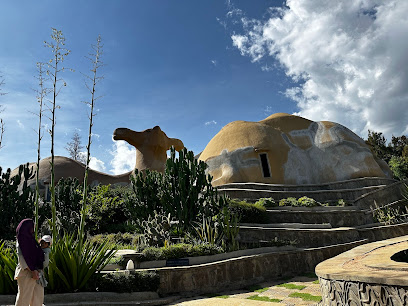
Meskel Square
Explore the vibrant Meskel Square in Addis Ababa, a historical landmark where culture, community, and the spirit of Ethiopia come alive.
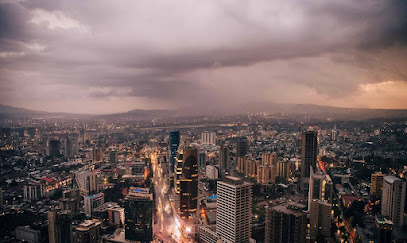
Haile Resort Arba Minch
Discover the tranquil beauty of Haile Resort Arba Minch, a luxurious retreat in Ethiopia with stunning views and exceptional service.
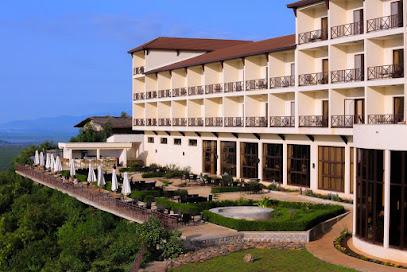
Addis Ababa Stadium
Experience the vibrant spirit of Ethiopian sports at Addis Ababa Stadium, a cultural hub for thrilling events and community celebrations.
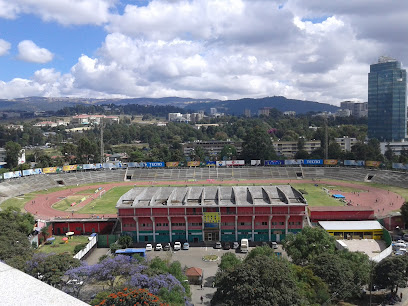
Fasil Ghebbi
Discover Fasil Ghebbi, a UNESCO World Heritage Site in Gondar, where the rich history and stunning architecture of Ethiopia's imperial past await your exploration.
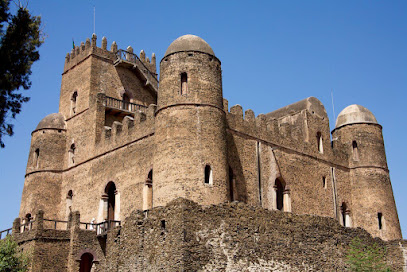
Paradise Lodge
Discover tranquility and adventure at Paradise Lodge, a serene haven in Arba Minch, Ethiopia, surrounded by breathtaking landscapes and rich culture.

Bale Mountains National Park
Explore the breathtaking landscapes and rich biodiversity of Bale Mountains National Park, a premier destination for nature lovers in Ethiopia.
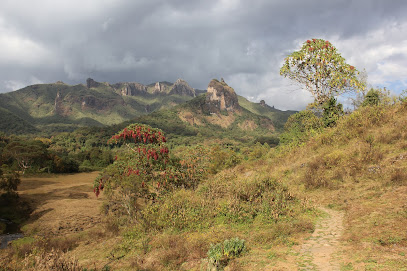
Debre Birhan Selassie Church
Explore the stunning frescoes and rich history of Debre Birhan Selassie Church, a cultural gem in the heart of Gondar, Ethiopia.
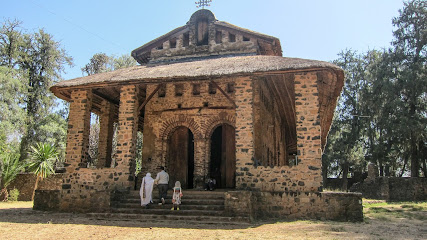
Rock-Hewn Churches, Lalibela
Discover the ancient wonder of Lalibela's Rock-Hewn Churches, a UNESCO World Heritage site, where faith and artistry converge in breathtaking architecture.
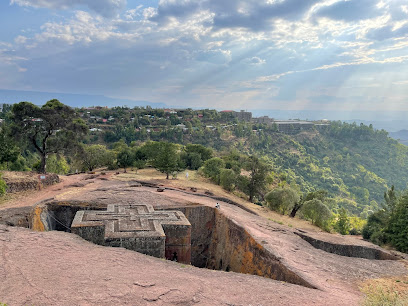
Arbaminch Asa Resturant
Experience the finest seafood in Addis Ababa at Arbaminch Asa Restaurant, where freshness meets traditional Ethiopian flavors.
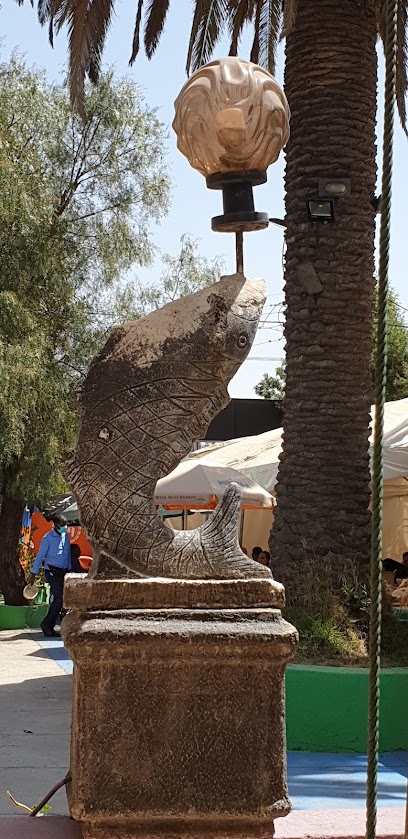
Nech Sar National Park
Explore the diverse ecosystems and stunning landscapes of Nech Sar National Park, a treasure trove of wildlife and natural beauty in Ethiopia.
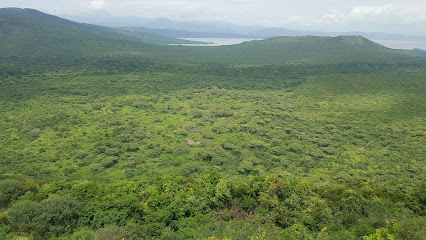
Chebera-Churchura National Park
Explore the breathtaking landscapes and diverse wildlife of Chebera-Churchura National Park, a hidden gem in Ethiopia for nature lovers and adventurers.
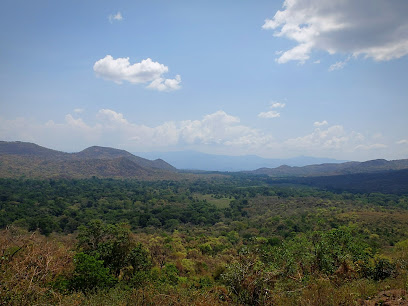
Lion of Judah Statue
Discover the Lion of Judah Statue in Addis Ababa, a monumental symbol of Ethiopia's heritage and resilience, capturing the essence of the nation's pride.
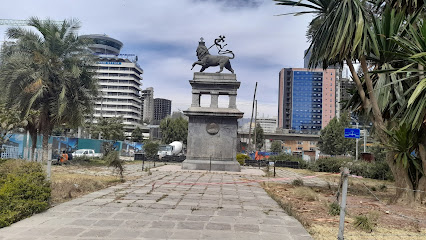
Mora Heights Hotel
Discover comfort and scenic views at Mora Heights Hotel in Arba Minch, Ethiopia, a perfect base for exploring natural beauty and local culture.
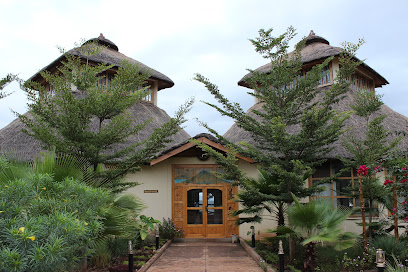
Emerald Resort Arbaminch
Discover tranquility and adventure at Emerald Resort Arbaminch in Ethiopia, where stunning landscapes meet modern comfort for an unforgettable getaway.

Unmissable attractions to see
Chebera-Churchura National Park
Explore the stunning landscapes and rich biodiversity of Chebera-Churchura National Park, a hidden gem in Ethiopia's natural heritage.
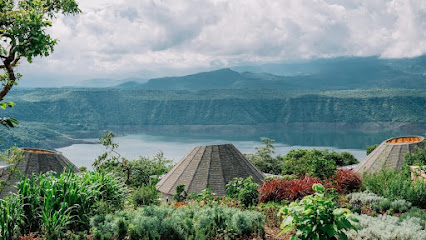
Dorze Village
Experience the vibrant culture and unique architecture of Dorze Village, a hidden gem in Ethiopia's scenic landscapes.
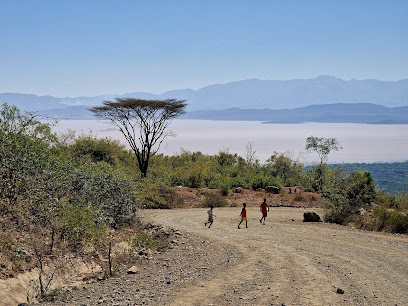
40 Springs
Immerse yourself in the natural beauty of 40 Springs, Arba Minch's tranquil park offering lush landscapes and serene water springs.
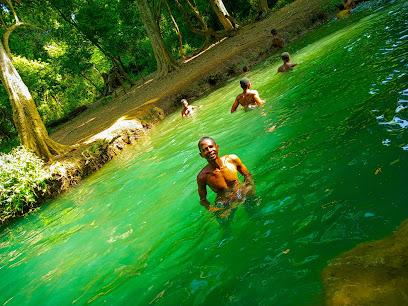
Croco Park
Experience the allure of Croco Park, a stunning nature preserve in Arba Minch, home to crocodiles and diverse wildlife amidst breathtaking landscapes.
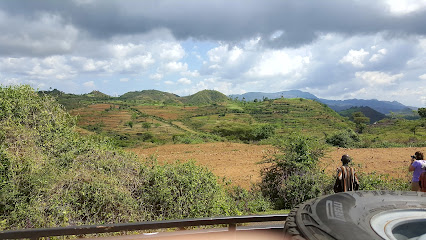
Fish Market Chamo lake
Discover the vibrant Fish Market at Chamo Lake, where local culture meets fresh catches in a stunning lakeside setting.
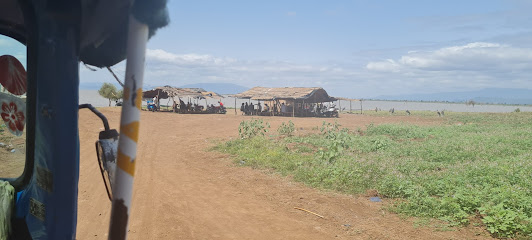
Dorsso Waterfall
Experience the enchanting beauty of Dorsso Waterfall, a hidden gem in Chencha, renowned for its breathtaking views and serene landscapes.
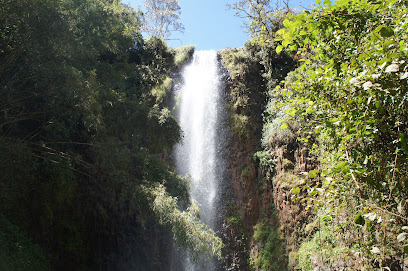
Little harbour for tourist boats of crocodile watching
Experience the thrill of crocodile watching at Little Harbour, a serene tourist attraction in Ethiopia, surrounded by stunning landscapes and diverse wildlife.
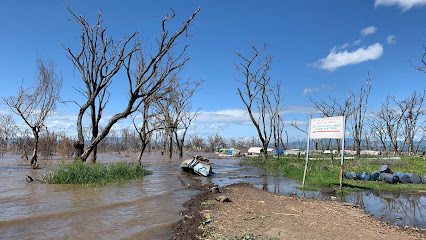
40 Springs Entrance Gate
Experience the serene beauty of 40 Springs Entrance Gate in Arba Minch, a perfect retreat into nature's tranquility amidst Ethiopia's breathtaking landscapes.
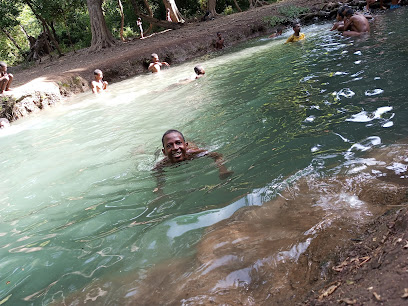
Egzer Dildiy (God's Bridge)
Experience the breathtaking beauty of Egzer Dildiy, a natural wonder in Nech Sar National Park, Ethiopia, perfect for nature lovers and adventurers alike.
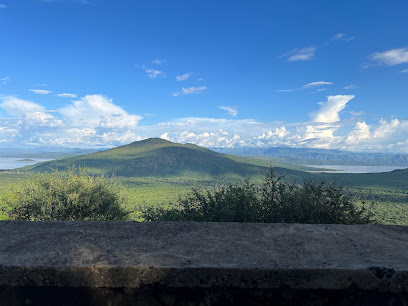
Dorze Eco Trekking
Discover the breathtaking landscapes and cultural heritage of Dorze Eco Trekking, an ecological park in the heart of Ethiopia.
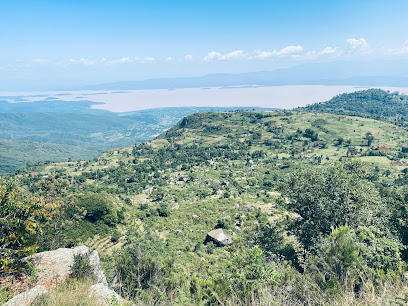
Maze National Park
Explore Maze National Park for an unforgettable adventure in Ethiopia's wild landscapes, teeming with diverse wildlife and stunning natural beauty.
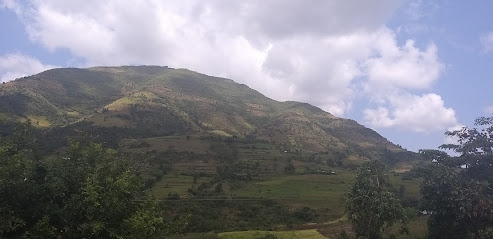
Bulee Horaa
Discover the serene beauty and rich culture of Bulee Horaa in Agere Mariyam, a perfect getaway for nature lovers and culture enthusiasts alike.
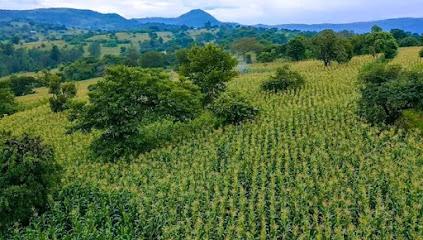
Beto Adebabay
Explore Beto Adebabay, a captivating attraction in Ethiopia, where stunning landscapes meet rich local culture for an unforgettable journey.
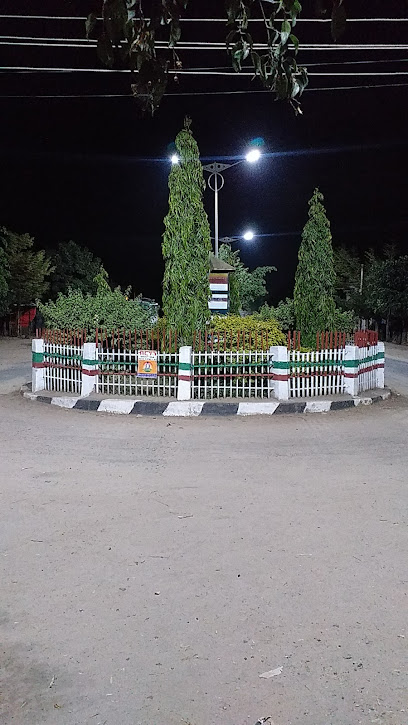
South Ethiopia Tour Organizer
Experience the breathtaking beauty and rich culture of South Ethiopia with a trusted local tour organizer in Arba Minch.
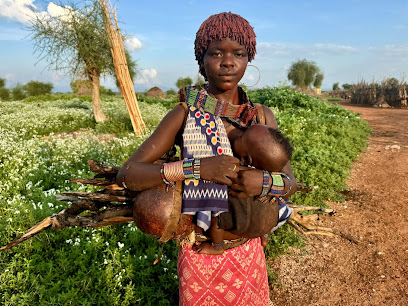
Dilla University Botanical garden
Explore the lush landscapes and diverse flora at the Dilla University Botanical Garden, a serene retreat for nature lovers in Ethiopia.
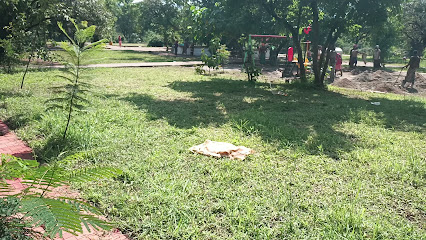
Essential places to dine
Mamush & Mamy Fresh Fish
Discover the essence of Ethiopian cuisine at Mamush & Mamy Fresh Fish in Arba Minch—where freshness meets tradition in every bite.
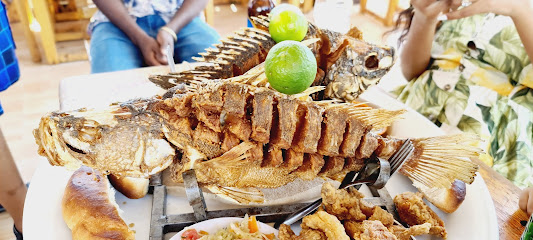
JF Garden Fish&Wine Restaurant
Experience the best seafood dining at JF Garden Fish&Wine Restaurant in Arba Minch – where fresh flavors meet serene ambiance.
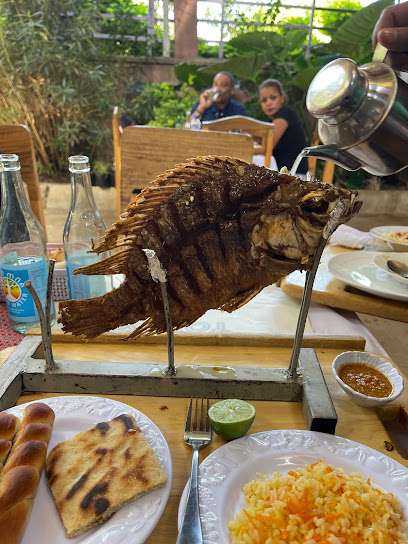
ለምለም ባር ና ሬስቶራንት Lemlem Bar and restaurant
Discover the rich flavors of Ethiopia at Lemlem Bar and Restaurant in Arba Minch – your destination for fresh fish dishes and local cuisine.
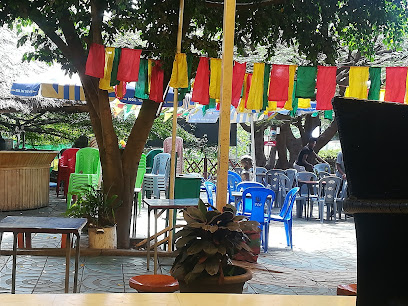
Soma Restaurant
Discover authentic Ethiopian flavors at Soma Restaurant in Arba Minch - where culture meets culinary excellence.
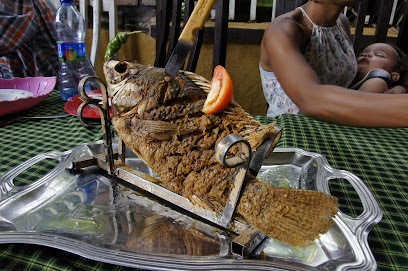
Lucy Bar & Restaurant
Experience authentic Ethiopian cuisine at Lucy Bar & Restaurant in Arba Minch – where flavor meets tradition in every bite.
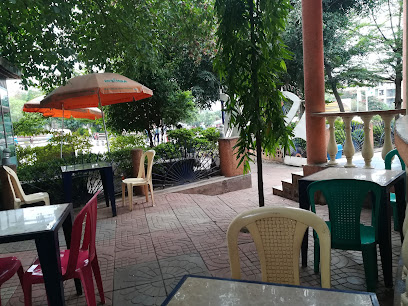
JEBM Cafe & Restaurant
Experience authentic Ethiopian flavors at JEBM Cafe & Restaurant in Arba Minch, where delicious food meets stunning views.
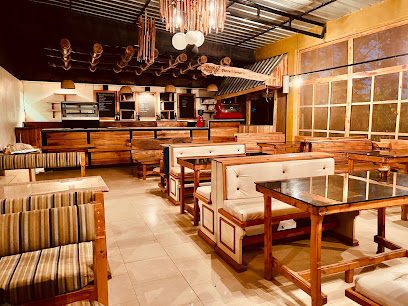
Romi hotel
Discover authentic Ethiopian flavors at Romi Hotel in Arba Minch - where delicious food meets warm hospitality amidst stunning landscapes.
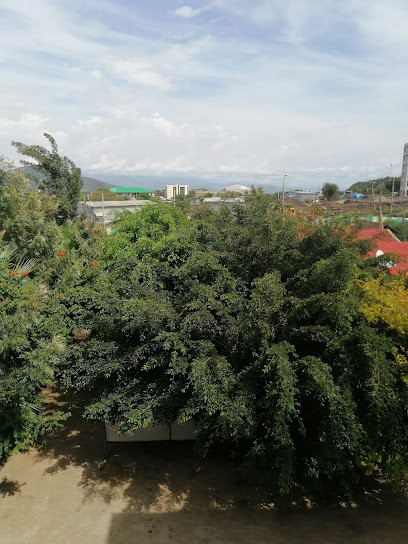
Mamush Asa
Experience comfort and tranquility at Mamush Asa, your ideal hotel retreat in the heart of Arba Minch's stunning landscapes.
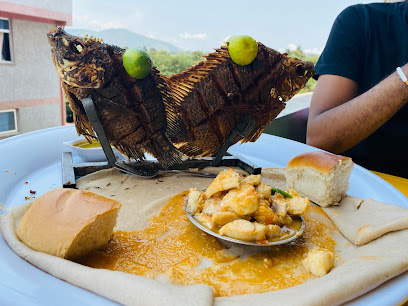
Dareto Restaurant
Experience authentic Ethiopian cuisine at Dareto Restaurant in Arba Minch with stunning views and warm hospitality.
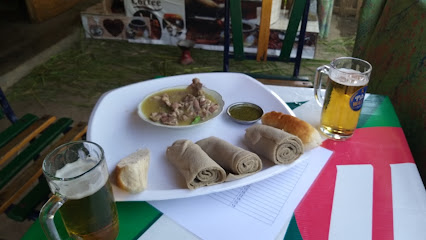
Adis Bar & Restaurant
Experience authentic Ethiopian cuisine at Adis Bar & Restaurant in Arba Minch – where flavor meets tradition in a welcoming atmosphere.
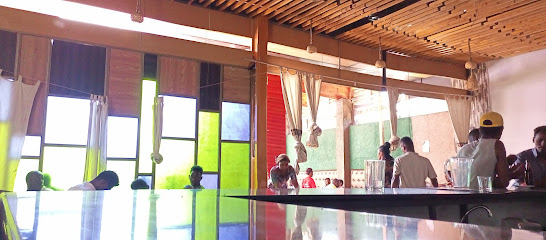
Seluke Asa
Discover the authentic flavors of Ethiopia at Seluke Asa, Arba Minch's premier fish restaurant offering fresh dishes and cultural experiences.

Adulala hotel/GRdula/ጊከማ/01N007/FNo
Savor the essence of Ethiopia at Adulala Hotel—where traditional flavors meet warm hospitality in Arba Minch.
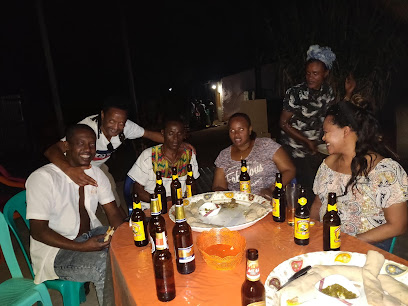
Abi Restaurant
Discover authentic Ethiopian flavors at Abi Restaurant in Arba Minch - a culinary treasure for every traveler.
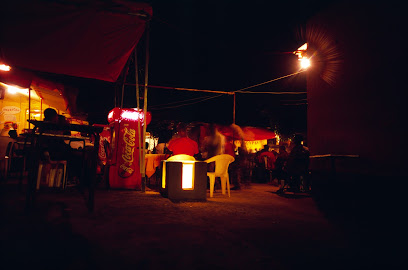
Arba minch coffee
Discover authentic Ethiopian flavors at Arba Minch Coffee, where every cup tells a story of culture and tradition in stunning surroundings.
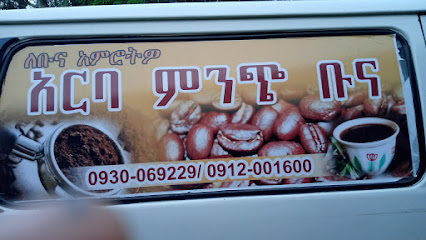
Fasika Bar & Restaurant
Experience authentic Ethiopian cuisine at Fasika Bar & Restaurant in Arba Minch - where tradition meets hospitality.
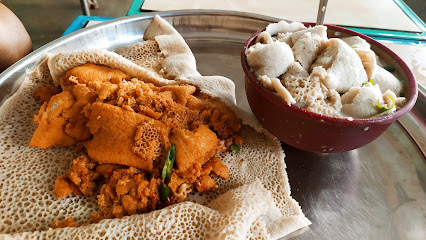
Markets, malls and hidden boutiques
ትንሿ ሞባይል እና አክሰሰሪ (Techo / Samsung Mobile)
Discover the latest Samsung mobile devices at Techo/Samsung Mobile in Arba Minch, a tech haven for travelers exploring Ethiopia's stunning landscapes.

Caramele Cake
Discover the sweet side of Arba Minch at Caramele Cake, where every bite is a delightful journey into local flavors and artistry.
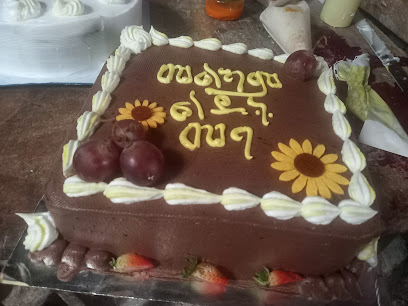
Mimi Supermarket
Discover local flavors and essentials at Mimi Supermarket, your go-to shopping destination in Arba Minch, Ethiopia.

She Kokeb
Explore She Kokeb in Arba Minch for a diverse selection of top-notch electronics and exceptional customer service.
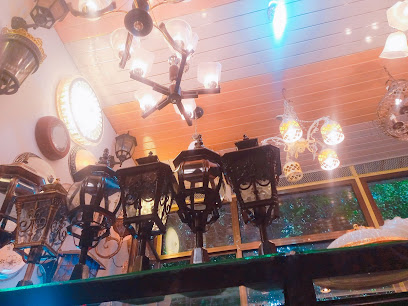
Abrash Mini Market
Discover the essence of local culture at Abrash Mini Market in Arba Minch, where vibrant products and welcoming vendors await.

muna Buna
Experience the rich flavors of Ethiopian coffee at Muna Buna in Arba Minch, the perfect spot for relaxation and local culture.
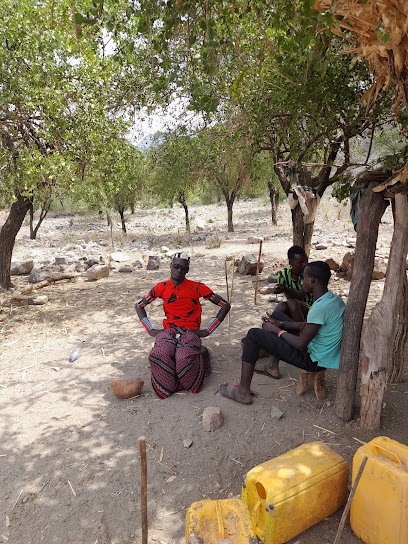
Banu Women's Fashion
Explore the vibrant styles of Banu Women's Fashion in Arba Minch, where local culture meets modern elegance in women's clothing.
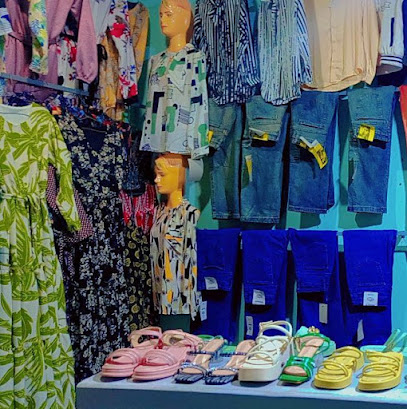
Desie Shalemo
Explore Desie Shalemo in Arba Minch for stylish children's clothing that blends local culture with modern fashion trends.
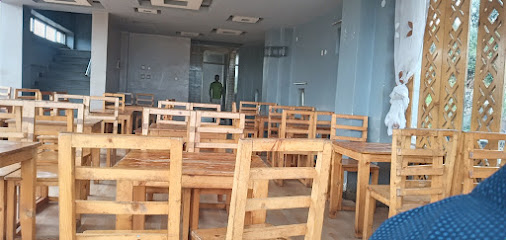
Melihik art works መልህቅ የጥበብ ሰራዎች
Discover unique handmade gifts at Melihik Art Works in Arba Minch, a showcase of Ethiopia's vibrant artistic heritage.
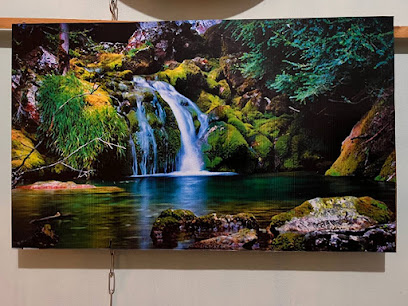
Sarina Super Market
Explore Sarina Super Market in Arba Minch, where local culture meets everyday essentials in a vibrant shopping experience.
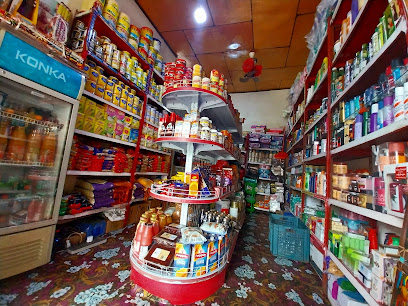
Suzi super market
Experience the vibrant shopping scene in Arba Minch at Suzi Supermarket, your go-to destination for local and international products.
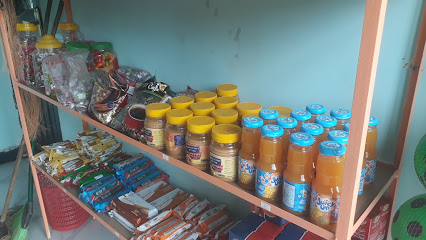
Jojo kids fashion
Explore stylish children's clothing at Jojo Kids Fashion in Arba Minch - a trendy destination for fashion-forward families.

Fruit Supermarket
Explore the vibrant flavors of Ethiopia at the Fruit Supermarket in Arba Minch, your go-to destination for fresh produce and local delicacies.

Shecha Open Market
Explore the Shecha Open Market in Arba Minch for a vibrant taste of local culture, fresh produce, and unique handicrafts.
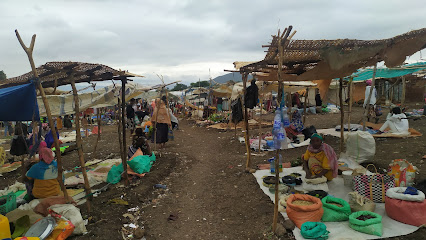
Arba Minch Muslim Jema`a Business Center
Discover a blend of local culture and shopping at the Arba Minch Muslim Jema`a Business Center, a vibrant hub for tourists in Ethiopia.
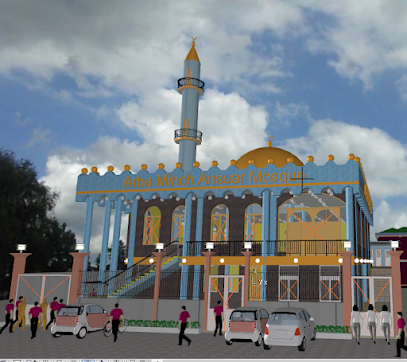
Essential bars & hidden hideouts
Lucy Bar & Restaurant
Experience the authentic tastes of Ethiopia at Lucy Bar & Restaurant in Arba Minch, where flavor meets tradition in a welcoming atmosphere.
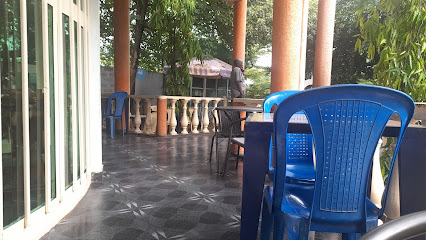
Genet Lounge
Discover the vibrant ambiance and refreshing drinks at Genet Lounge in Arba Minch, a perfect spot for relaxation and socializing.
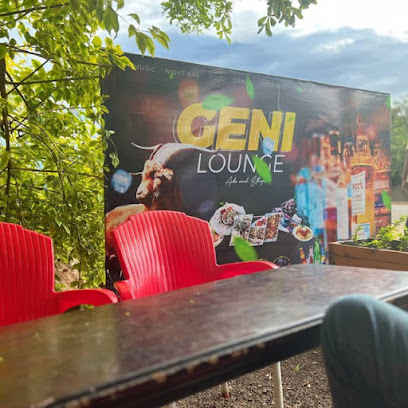
Adis Bar & Restaurant
Experience the flavors of Ethiopia at Adis Bar & Restaurant, a cozy dining spot in Arba Minch offering traditional dishes and a warm atmosphere.
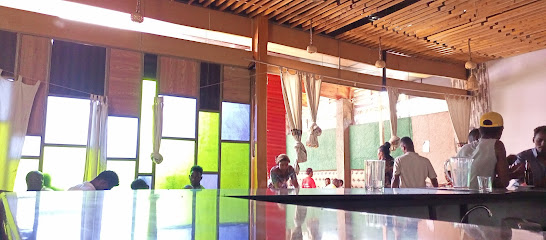
Harar Corner
Discover the vibrant atmosphere of Harar Corner, a bar in Arba Minch offering local drinks and cultural experiences in a cozy setting.
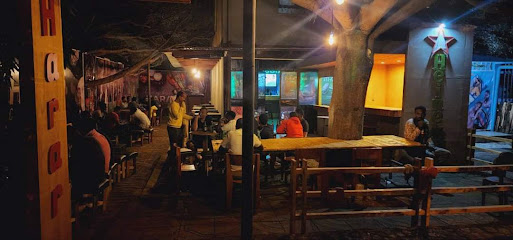
Lion Bar
Discover the lively vibe of Lion Bar in Arba Minch, where locals and tourists mingle over drinks in a vibrant atmosphere.
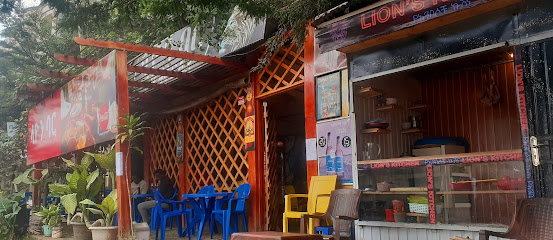
Mame Bar And Restaurant
Experience the lively vibe of Mame Bar and Restaurant in Arba Minch, where local culture meets delicious food and refreshing drinks.

Dubusha Bar and Restaurant
Experience the authentic flavors of Ethiopia at Dubusha Bar and Restaurant in Arba Minch, where vibrant culture meets culinary excellence.
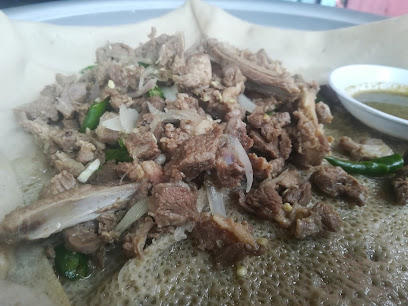
Zeki Special Fish
Experience the vibrant ambiance and exquisite flavors of seafood at Zeki Special Fish in Arba Minch, a true gem for food lovers.

Hor bar & Restaurant
Discover the authentic taste of Ethiopian cuisine at Hor Bar & Restaurant in Arba Minch, where local flavors and warm hospitality meet.
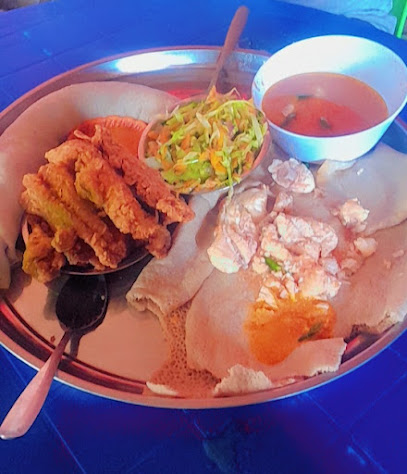
Fasika Bar & Restaurant
Experience the vibrant culture and delectable local cuisine at Fasika Bar & Restaurant in Arba Minch, Ethiopia.
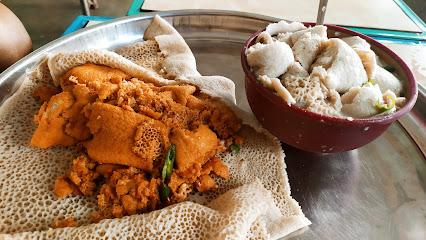
Messi Bar and Restaurant
Discover the vibrant atmosphere and local charm at Messi Bar and Restaurant in Arba Minch, where relaxation meets cultural experience.

Tagi
Experience the vibrant culture and relaxation at Tagi, the perfect bar in Arba Minch for unwinding with local drinks and music.
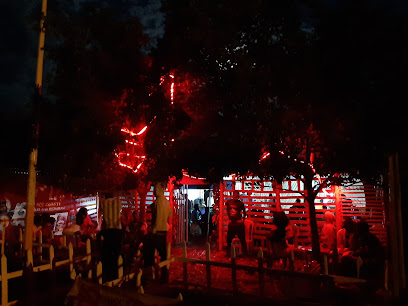
Ayana Soka
Discover the vibrant nightlife at Ayana Soka, a lively bar in Arba Minch offering local drinks, live music, and stunning views for an unforgettable experience.

Gero Hotele
Discover the vibrant atmosphere of Gero Hotele in Arba Minch, where local flavors and warm hospitality await you.
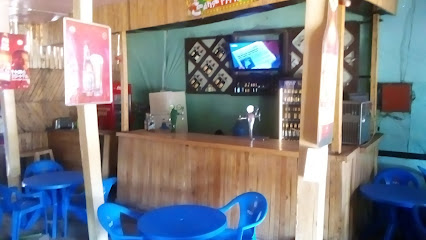
Local Phrases about Arbaminch
-
- Helloሰላም
[sälam] - Goodbyeወደላይ
[wädalay] - Yesአዎ
[aw] - Noአዎ
[ay] - Please/You're welcomeእሺ/ለእሺ
[ishi/le ishi] - Thank youአመሰግናለሁ
[amesegnalehu] - Excuse me/Sorryተብሎ
[teblo] - How are you?እንዴት ነህ?
[endeht neh?] - Fine. And you?አውቃም ነኝ. እስከ እሺ ነህ?
[awakam nega. eske ishi neh?] - Do you speak English?እንዴት እንዴት እንዴት ነህ?
[endeht endet endet neh?] - I don't understandአልተኛል
[altnagal]
- Helloሰላም
-
- I'd like to see the menu, pleaseማኔ የሞንዌን በመሆን ይህን ማስተዋወቂያ እገናለሁ
[mane yamoni bonahihin masetawawekiqi egenalehu] - I don't eat meatእስለም ምግብ አልተገደፈኝ
[esleme migeb altagadefane] - Cheers!ሳምንት
[sament] - I would like to pay, pleaseማኔ ይገብረኛል
[mane yigabergenal]
- I'd like to see the menu, pleaseማኔ የሞንዌን በመሆን ይህን ማስተዋወቂያ እገናለሁ
-
- Help!እገለ
[egle] - Go away!ከተማ
[ketama] - Call the Police!ፖሊስ አድርገ
[polis adirige] - Call a doctor!ሰማይ አድርገ
[semai adirige] - I'm lostየልቅሶኛል
[yeliksonal] - I'm illየተሰናዱ ነኝ
[yetsendu nega]
- Help!እገለ
-
- I'd like to buy...ማኔ አምጡ
[mane amtu] - I'm just lookingባለፈው ነኝ
[balefewe nega] - How much is it?እባኮ እስከ?
[ebako eske?] - That's too expensiveእንስራኤል ነው
[ensirele new] - Can you lower the price?እርጋታ እስከ?
[ergata eske?]
- I'd like to buy...ማኔ አምጡ
-
- What time is it?ሰዓት ማን ነው?
[sa'at man new?] - It's one o'clockአንድ ሰዓት ነው
[and sa'at new] - Half past (10)ሰዓት አስር
[sa'at asir] - Morningጥዎቅ
[t'owq] - Afternoonቀን
[qen] - Eveningማታ
[mata] - Yesterdayትናንት
[tanat] - Todayዛሬ
[zaray] - Tomorrowነገ
[nega] - 1አንድ
[and] - 2ሁለት
[hulet] - 3ሶስት
[sost] - 4አራት
[arat] - 5አምስት
[amsost] - 6ስድስት
[sidost] - 7ሰባት
[sebat] - 8ስምንት
[sement] - 9ዘጠኝ
[zeten] - 10አስር
[asir]
- What time is it?ሰዓት ማን ነው?
-
- Where's a/the...?በዚህ ስለ ፣ እንደሚታይ ማንኛው ነው?
[bezi sile , endemtaye managnew?] - What's the address?አድራሻ ምን ነው?
[adirasha min new?] - Can you show me (on the map)?መልእክት አታይም?
[melikiti atayim] - When's the next (bus)?ከቀን እስከ ስራ ነው?
[keqen eske sara new?] - A ticket (to ....)መረጃ (እርገኛለሁ)
[merja (ergenalehu)]
- Where's a/the...?በዚህ ስለ ፣ እንደሚታይ ማንኛው ነው?
History of Arbaminch
-
Arbaminch, which means 'forty springs' in Amharic, was founded in the early 1960s. The town was established by Emperor Haile Selassie, who recognized the region's potential due to its abundant natural water sources and fertile lands. The town quickly became a hub for agriculture and trade, contributing to its rapid growth and development.
-
The Gamo people, an ethnic group indigenous to the region, have played a significant role in shaping Arbaminch's culture. Known for their intricate weaving and pottery skills, the Gamo people have a rich oral tradition and a deep connection to their ancestral lands. Their cultural practices and traditional knowledge continue to influence the daily life and festivities in Arbaminch.
-
Established in 1974, Nechisar National Park is one of Ethiopia's most important protected areas, located near Arbaminch. The park is home to diverse wildlife, including the endemic Swayne's hartebeest. The scenic beauty of the park, with its 'white grass' savannahs and the twin lakes of Abaya and Chamo, has made it a major tourist attraction and a crucial part of Arbaminch's identity.
-
The twin lakes, Lake Abaya and Lake Chamo, are vital to the region's ecosystem and economy. Lake Abaya, known for its reddish-brown waters, and Lake Chamo, famed for its crocodile market, support local fisheries and agriculture. These lakes are also central to the cultural and spiritual life of the local communities, who celebrate various rituals and ceremonies around them.
-
Founded in 2004, Arbaminch University has become a beacon of higher education in southern Ethiopia. The university offers diverse programs and has fostered research in fields such as water resources, agriculture, and environmental science. Its establishment has brought educational opportunities and economic growth to the region, further solidifying Arbaminch's role as a key educational center.
-
The Bridge of God, a natural land bridge located within Nechisar National Park, is a geological marvel and a cultural landmark. It connects the two Rift Valley lakes, Abaya and Chamo, and is believed to have formed from volcanic activity millions of years ago. The bridge is not only a tourist attraction but also holds spiritual significance for the local communities, who regard it as a symbol of divine craftsmanship.
Arbaminch Essentials
-
Arbaminch is located in the Southern Nations, Nationalities, and Peoples' Region of Ethiopia. The nearest major airport is Addis Ababa Bole International Airport, approximately 500 kilometers away. From Addis Ababa, you can take a domestic flight to Arba Minch Airport, which is about 5 kilometers from the town center. Alternatively, you can travel by road, with bus services and private taxis available. The journey by road usually takes around 8 to 10 hours depending on the traffic and road conditions.
-
Within Arbaminch, transportation options include local minibuses, taxis, and motorcycle taxis (bajajs). Minibuses are a common and affordable mode of transport for short distances, while taxis offer a more comfortable and convenient way to get around. Motorcycle taxis are ideal for quick trips. For exploring nearby attractions, renting a car with a driver is a good option. Walking is also feasible in the town center and for heading to close-by sites.
-
The official currency in Ethiopia is the Ethiopian Birr (ETB). Credit cards are accepted in some hotels and large restaurants, but cash is predominantly used, especially in smaller establishments and local markets. ATMs are available in Arbaminch, but it is advisable to carry enough cash, particularly when venturing to rural areas. Major currencies like USD and EUR can be exchanged at banks and authorized exchange bureaus.
-
Arbaminch is generally safe for tourists, but standard precautions should be taken. Avoid walking alone at night in unfamiliar areas and be mindful of pickpocketing in crowded places. It is recommended to stay within well-frequented neighborhoods and avoid isolated areas. Specific high-crime areas targeting tourists are not prevalent, but vigilance is always advised.
-
In case of emergency, dial 911 for police assistance. For medical emergencies, contact the nearest hospital or clinic in Arbaminch. It is essential to have travel insurance that covers medical emergencies. Pharmacies are available in the town for over-the-counter medications. Embassy or consulate contact details should be handy for further assistance.
-
Fashion: Do dress modestly, especially when visiting religious sites and rural areas. Avoid wearing revealing clothing. Religion: Do respect local customs and traditions. Always remove your shoes when entering a place of worship. Public Transport: Do be respectful and give up your seat to elderly passengers. Don’t eat or drink on public transport. Greetings: Do greet people with a handshake. A slight bow of the head is also a sign of respect. Eating & Drinking: Do try local delicacies and accept food offerings graciously. Don’t refuse hospitality, as it is considered impolite.
-
To experience Arbaminch like a local, visit the local markets where you can buy fresh produce and traditional Ethiopian goods. Engage with locals, as they are often friendly and willing to share stories about the town's history and culture. Don't miss visiting the twin lakes, Lake Abaya and Lake Chamo, and take a boat trip for a chance to see crocodiles and hippos. For a unique experience, visit the Dorze village to learn about the traditional weaving and bamboo houses.
Trending Landmarks in Arbaminch
-
Unity Park
-
Meskel Square
-
Haile Resort Arba Minch
-
Addis Ababa Stadium
-
Fasil Ghebbi
-
Paradise Lodge
-
Bale Mountains National Park
-
Debre Birhan Selassie Church
-
Rock-Hewn Churches, Lalibela
-
Arbaminch Asa Resturant
-
Nech Sar National Park
-
Chebera-Churchura National Park
-
Lion of Judah Statue
-
Mora Heights Hotel
-
Emerald Resort Arbaminch
Nearby Cities to Arbaminch
-
Things To Do in Jinka
-
Things To Do in Awasa
-
Things To Do in Addis Ababa
-
Things To Do in Debre Markos
-
Things To Do in Bahir Dar
-
Things To Do in Dire Dawa
-
Things To Do in Harar
-
Things To Do in Kitale
-
Things To Do in Eldoret
-
Things To Do in Mbale
-
Things To Do in Lira
-
Things To Do in Lalibela
-
Things To Do in Gulu
-
Things To Do in Nakuru
-
Things To Do in Gondar









